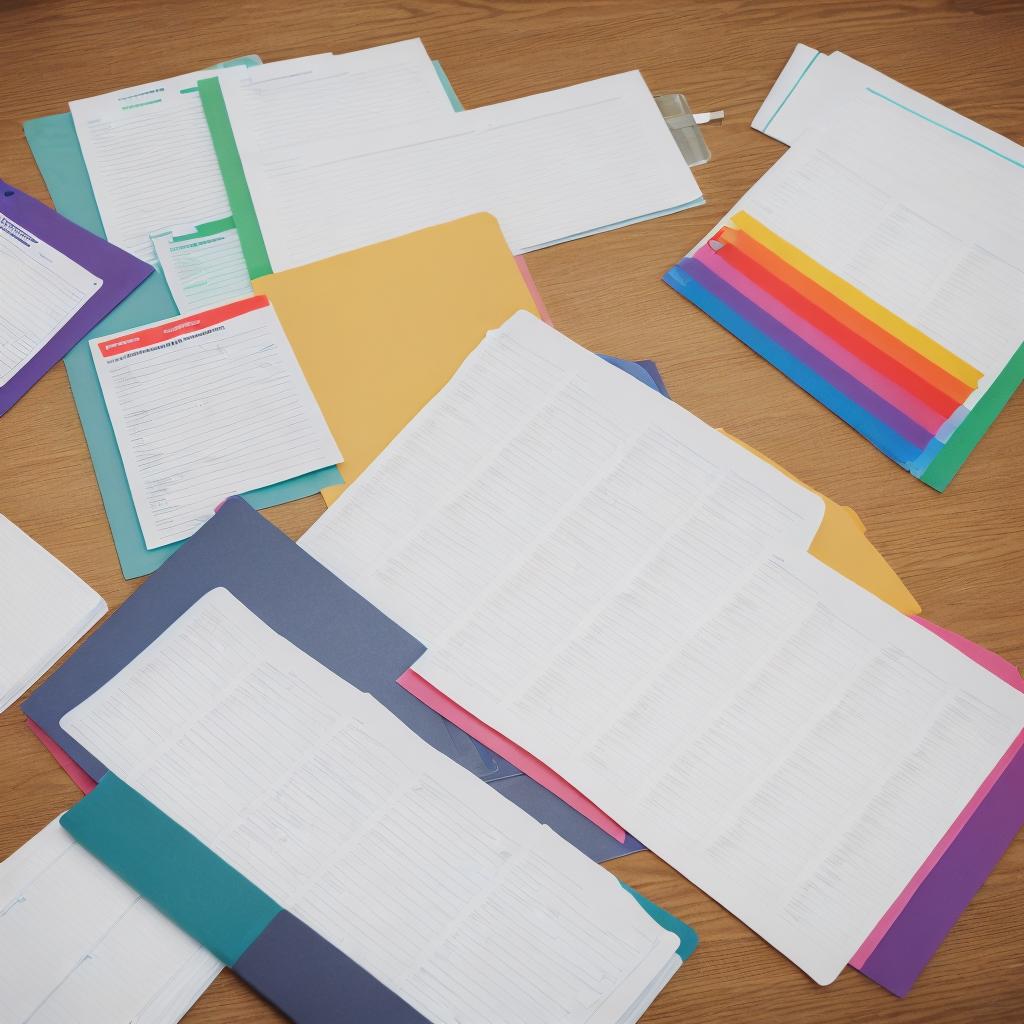7 Best Documents for Successful Medicaid Enrollment

Did you know that 9 out of 10 Medicaid applications are denied due to incomplete or missing documentation? To ensure a successful enrollment, it’s crucial to have the right documents ready.
In this article, we will guide you through the 7 best documents you need for a smooth Medicaid enrollment process. From proof of identity to income verification, we’ve got you covered.
So, let’s dive in and learn how to navigate the paperwork and secure your Medicaid coverage.
Key Takeaways
- Valid government-issued ID, legal documentation for name changes, and proof of citizenship or immigration status are required for Medicaid enrollment.
- It is important to have accurate and up-to-date documentation, and contacting the local Medicaid office for guidance on acceptable documents is recommended.
- Lost or misplaced documents can be resolved by contacting the issuing authority for replacements, and incomplete or outdated documents can be updated before submission.
- Other important documents include proof of income, proof of residency, proof of household composition, and medical records and health insurance information.
Proof of Identity
To successfully enroll in Medicaid, you’ll need to provide a valid form of identification. This is a crucial step in the application process, as it helps establish your identity and ensures that you’re eligible for the program.
Medicaid requires you to present a government-issued ID, such as a driver’s license, passport, or state-issued identification card. It’s important to make sure that your ID is current and not expired, as Medicaid will only accept valid forms of identification.
Additionally, if you have recently changed your name, you’ll need to provide legal documentation, such as a marriage certificate or court order, to prove the name change.
Proof of Citizenship or Immigration Status
When applying for Medicaid, you need to provide proof of your citizenship or immigration status. Required citizenship documentation includes a U.S. passport, birth certificate, or naturalization certificate.
If you’re an immigrant, accepted immigration identification may include a permanent resident card or employment authorization document.
It’s important to be aware of common proof challenges, such as expired documents or missing information, to ensure a successful Medicaid enrollment process.
Required Citizenship Documentation
You will need to provide proof of your citizenship or immigration status as part of the required documentation for successful Medicaid enrollment.
This documentation is necessary to verify your eligibility for Medicaid benefits.
For U.S. citizens, acceptable proof of citizenship includes a birth certificate, a U.S. passport, a Certificate of Naturalization, or a Certificate of Citizenship.
If you’re an immigrant, you’ll need to provide documents such as a Permanent Resident Card (Green Card), an employment authorization document, or an arrival and departure record.
It’s important to ensure that the documents you provide are valid and up to date. If you have any questions about which documents are acceptable, it’s recommended to contact your local Medicaid office for guidance.
Accepted Immigration Identification
For successful Medicaid enrollment, it’s important to have accepted immigration identification that proves your citizenship or immigration status. This documentation is crucial in verifying your eligibility for Medicaid benefits.
Accepted forms of immigration identification include a valid U.S. passport, Certificate of Naturalization, Certificate of Citizenship, or a Permanent Resident Card (also known as a ‘Green Card’). These documents demonstrate your legal status and enable you to access the healthcare coverage you need.
It’s essential to ensure that your immigration identification is current and valid, as outdated or expired documents may lead to delays or denial of Medicaid enrollment. Be sure to carefully review the requirements and guidelines provided by your state’s Medicaid office to ensure you have the necessary documentation to prove your citizenship or immigration status accurately.
Common Proof Challenges
Facing proof challenges for your citizenship or immigration status is common during the Medicaid enrollment process. It is important to have the necessary documents to prove your eligibility. Here are some common challenges you may encounter:
| Challenge | Solution |
|---|---|
| Lost or misplaced documents | Contact the issuing authority for replacements. |
| Incomplete or outdated documents | Update your documents before submitting them. |
| Non-English documents | Provide translations by a certified translator. |
These challenges can be frustrating, but with the right approach, you can overcome them. Remember to keep copies of all your documents and stay organized throughout the enrollment process. If you need assistance, reach out to your local Medicaid office or a Medicaid enrollment counselor. By being prepared and proactive, you can ensure a smoother enrollment experience.
Social Security Number Verification
When applying for Medicaid, verifying your Social Security Number (SSN) is crucial. The SSN verification process involves providing the necessary documentation to prove your SSN’s authenticity.
However, you may encounter challenges such as lost or incorrect documents, which can be resolved by contacting the Social Security Administration or obtaining a replacement card.
Importance of SSN Verification
To ensure successful Medicaid enrollment, it’s essential to verify your Social Security Number (SSN). Verifying your SSN is crucial for several reasons:
- Identification: Your SSN serves as a unique identifier, allowing the Medicaid program to accurately identify you and ensure that your eligibility and benefits are properly assigned.
- Preventing fraud: By verifying your SSN, the Medicaid program can protect against fraudulent activities, such as identity theft or individuals attempting to receive benefits under false pretenses.
- Accuracy of records: Verifying your SSN ensures that your personal information is accurately recorded in the Medicaid system, reducing the potential for errors and ensuring that you receive the appropriate benefits and services.
Verification Process Overview
How can you ensure a smooth and efficient verification process for your Social Security Number (SSN) during Medicaid enrollment? The verification process for your SSN is a crucial step in the Medicaid enrollment process. It is important to provide accurate and up-to-date information to avoid delays or complications. To ensure a smooth verification process, make sure to double-check that your SSN is correctly entered on all relevant application forms. Additionally, have the necessary documents ready, such as your Social Security card or any other proof of your SSN. Take note of any specific instructions provided by your Medicaid office regarding SSN verification. By being proactive and prepared, you can help streamline the verification process and expedite your Medicaid enrollment.
| Tips for Smooth SSN Verification Process |
|---|
| Double-check SSN on application forms |
| Gather necessary documents |
| Follow specific instructions from Medicaid office |
| Be proactive and prepared |
Now let’s move on to potential challenges and solutions in the Medicaid enrollment process.
Potential Challenges and Solutions
Ensuring successful Medicaid enrollment involves navigating potential challenges and finding solutions, such as verifying your Social Security Number (SSN). When it comes to SSN verification, you may encounter a few hurdles along the way.
Here are some common challenges and their corresponding solutions:
- Challenge: Mismatched information
- Solution: Double-check the accuracy of your SSN and other personal details provided. Contact the Social Security Administration if there are any discrepancies.
- Challenge: Missing or lost SSN card
- Solution: Request a replacement SSN card from the Social Security Administration. Keep a copy of the replacement card for future reference.
Income Verification Documents
When applying for Medicaid, you’ll need to provide income verification documents. These documents are essential in determining your eligibility for the program. Medicaid is a needs-based program that takes into account your income level to determine if you qualify for coverage.
To verify your income, you’ll typically need to provide recent pay stubs, W-2 forms, or tax returns. These documents serve as proof of your income and help the Medicaid office assess your eligibility. Additionally, if you receive any other forms of income such as Social Security benefits or retirement pensions, you may need to provide documentation for those as well.
It’s important to ensure that these income verification documents are accurate and up to date to avoid any delays or complications in the enrollment process. If you’re self-employed, you may need to provide additional documentation such as profit and loss statements or business tax returns.
Proof of Residency
To continue the discussion from the previous subtopic, you’ll need to provide one document as proof of residency when applying for Medicaid. This document is necessary to confirm that you’re a resident of the state in which you’re applying for Medicaid benefits.
Here are two examples of documents you can use as proof of residency:
- Utility bill: A recent utility bill, such as a gas, water, or electricity bill, that shows your name and current address. This document serves as evidence that you’re living at the stated address and can be used as proof of residency.
- Lease agreement: If you’re renting a home or apartment, you can submit a copy of your lease agreement. This document should include your name, the address of the property, the duration of the lease, and the signatures of both parties. A lease agreement serves as proof that you’re residing at the specified address.
Proof of Household Composition
Gather the necessary documents to prove the composition of your household when applying for Medicaid. Providing accurate proof of household composition is crucial for a successful Medicaid enrollment process. This documentation helps determine your eligibility and the number of individuals who’ll be covered under your Medicaid plan.
To ensure your application is processed smoothly, gather the following documents:
- Birth Certificates: Obtain birth certificates for all members of your household, including yourself, your spouse, children, and any other dependents. These certificates verify your relationship and establish the composition of your household.
- Marriage Certificates: If you’re married, provide a copy of your marriage certificate to prove your relationship with your spouse. This document helps establish your household composition.
- Adoption/Guardianship Papers: If you have adopted a child or have legal guardianship over a dependent, provide the relevant adoption or guardianship papers. These documents verify the inclusion of these individuals in your household.
- Divorce Decrees: In the case of divorce, include the divorce decree to prove the absence of a former spouse in your household composition.
Remember to make copies of these documents and keep them organized. By providing clear and accurate proof of your household composition, you can ensure a smooth and successful Medicaid enrollment process.
Medical Records and Health Insurance Information
As you provide accurate proof of household composition, it’s essential to also gather your medical records and health insurance information for a successful Medicaid enrollment process. Having these documents ready will help streamline the application process and ensure that you receive the appropriate healthcare coverage you need.
Here are some key points to consider when gathering your medical records and health insurance information:
- Medical Records:
- Make sure to collect all relevant medical records, including doctor visits, hospitalizations, surgeries, and any ongoing treatments or medications.
- Request your medical records from all healthcare providers you have visited in the past, including primary care physicians, specialists, and hospitals.
- Organize your medical records in a clear and easily accessible manner, as you may need to provide copies of these documents during the enrollment process.
- Health Insurance Information:
- Gather information about your current health insurance coverage, including policy numbers, insurance provider contact information, and details about your plan’s benefits.
- If you have multiple health insurance plans, make sure to have information for all of them, as this can affect your eligibility for Medicaid.
Frequently Asked Questions
What Are the Common Reasons for Medicaid Enrollment Applications to Be Denied?
When applying for Medicaid, your application may be denied for common reasons like incomplete documentation, income exceeding eligibility limits, or not meeting residency requirements. Ensure you have the necessary documents and meet the criteria.
Are There Any Specific Documents Required for Individuals With Disabilities or Special Health Care Needs?
To successfully enroll in Medicaid with disabilities or special health care needs, you’ll need specific documents like medical records, proof of income, and disability certification. These documents are crucial for your application’s approval.
How Long Does the Medicaid Enrollment Process Usually Take?
The Medicaid enrollment process usually takes several weeks. You will need to gather the necessary documents, complete the application, and submit it to your local Medicaid office. They will then review your application and determine your eligibility.
Can I Apply for Medicaid for My Child if I Am Not a Legal Guardian?
You cannot apply for Medicaid for a child if you are not their legal guardian. Only legal guardians can apply for Medicaid on behalf of a child.
Are There Any Income Limits or Thresholds That Could Affect Medicaid Eligibility?
There are definitely income limits and thresholds that could potentially affect your eligibility for Medicaid. It’s important to be aware of these limits and thresholds when applying for Medicaid.



